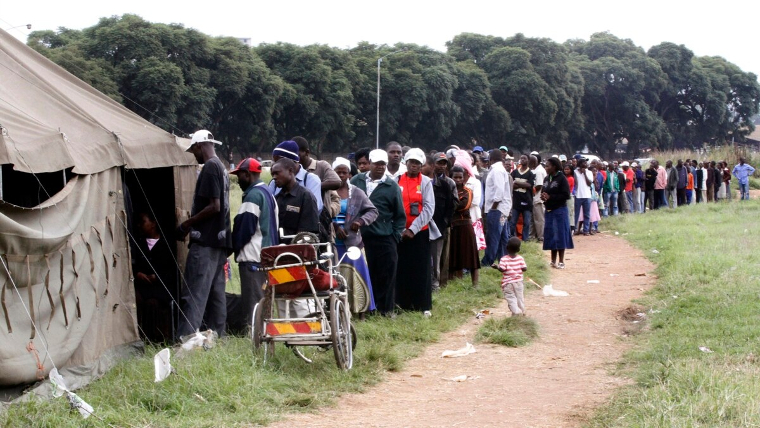Early Dissolution of Parliament
The first event to trigger an early election would occur if the Senate and the National Assembly, sitting separately, were to resolve that Parliament should be dissolved. If the resolutions were passed by two-thirds majorities of the total membership of each House, then the President would be obliged by section 143(2) of the Constitution to issue a proclamation dissolving Parliament.
In that event a general election would have to be held within 90 days after the last resolution was passed: section 158(1)(b) of the Constitution.
Can this be done?
The ruling ZANU-PF party can get the requisite two-thirds majorities in both Houses for dissolution resolutions to be passed:
- The National Assembly has 270 members so 180 votes constitute a two-thirds majority. ZANU-PF has 182 seats, two more than are needed to pass a dissolution resolution.
- The Senate has 80 Senators, so 54 votes constitute a two-thirds majority. ZANU-PF has 34 seats, but there are 18 Senator Chiefs who usually vote with the ruling party. If the ZANU-PF Senators and 10 chiefs were to vote for a dissolution resolution it would be passed by the requisite two-thirds majority. (Ed: This does not seem to add up)
If therefore the ruling party wanted an early general election, it has the votes to get one.
Parliament Refusing to Pass a Budget
Under section 143(3) of the Constitution the President may dissolve Parliament if the National Assembly unreasonably refuses to pass an Appropriation Bill that forms part of the annual budget legislation.
Given ZANU-PF’s enormous majority it is unlikely that the National Assembly would refuse to pass an Appropriation Bill, however unpopular the Minister of Finance’s budget measures may be. It is vanishingly improbable that the Assembly would refuse to pass an Appropriation Bill as a pretext for calling an early election.
Vote of No Confidence in Government
If the Senate and the National Assembly, by a joint resolution passed by at least two-thirds of their total membership, were to pass a vote of no confidence in the Government, then the President would be obliged by section 109 of the Constitution to do one of two things within 14 days after the vote:
- either remove all Ministers and Deputy Ministers from office and replace them, or
- dissolve Parliament and, within 90 days, call a general election.
Barring an irreversible split in the ruling party it is inconceivable that Parliament would pass a vote of no confidence in the Government, and it would never do so merely as a pretext for an early election.
Continued next page
(259 VIEWS)


